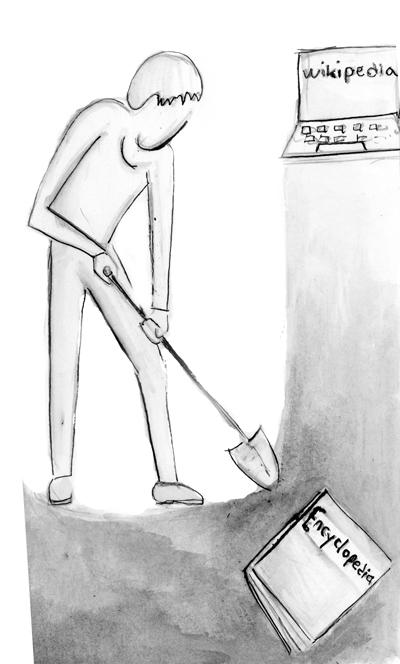By: Emily Shultz
Throughout the years, people have continued to

grow more dependent upon technology. It started out with dial-up internet, which required waiting for a connection while the server “dialed” in and prohibited any phone calls to come in or out of the household.
Then, we advanced to high-speed internet that came with the unthinkable attribute of separate phone lines. Next came the astonishing wireless internet which allowed us to connect anywhere that had a “wireless” connection set up.
Nowadays, cell phones have advanced to the point where they contain any and all connection we require. Connection to the internet, connection with friends through texting and calls, connection with social media – there is pretty much no limit. It has come to the point that people cannot go anywhere without having their cell phone right by their sides.
But what does this connection at the palm of our hands really mean for our generation? Personally, I think that cell phones that include all of this phenomenal technology have hindered our verbal and nonverbal relationships. By having the ability to talk, ask questions and communicate through texting, people have forgotten what it is like to make a real connection with each other.
Getting to know someone through texting is extremely less personal than getting to know a person face-to-face. If you ask someone a personal question through texting, you can only process what they say by reading the words that they have sent. However, if you ask the same question in person, you get to experience the emotions radiating from the other person, such as facial expressions and all of the nonverbal communication the person exhibits that you would miss out on if you had been texting.
People have become so obsessed with technology that it also inhibits their ability of acquiring a long, or even regular, attention span. We see it every day in class. The professor will be talking and the instant someone next to you receives a text, his or her full attention is aimed solely at the cell phone. Therefore, distracted students either completely miss the material that is being taught and reconvene listening after they are done texting, or their entire attention is now on the conversation they are having and forget to listen to the professor altogether.
There is no denying that technology has improved to extremes we never thought possible, but are we really better off?




